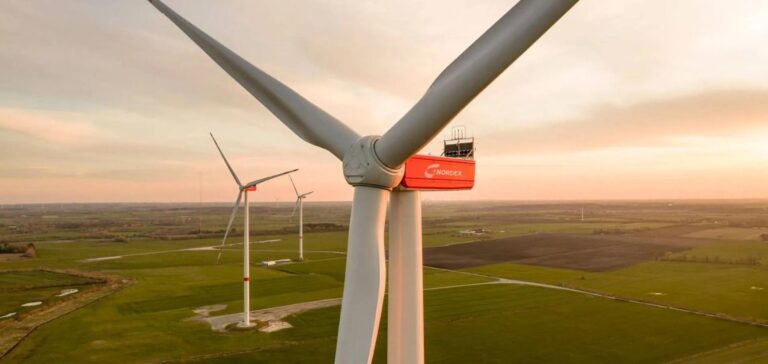European renewable energy companies are increasingly feeling the effects of US political uncertainty.
With the 2024 presidential elections approaching and the possibility of Donald Trump’s return to the White House, many companies are reconsidering their expansion and investment plans in the United States.
Impact of political uncertainty on investment decisions
Donald Trump, who regularly criticizes the climate policies of his successor Joe Biden, is promising to roll back many of the green measures he has put in place, including the Inflation Reduction Act (IRA).
This law, passed in 2022, offers tax incentives and subsidies to domestic and foreign companies investing in sustainable energy.
For European companies, this law has been a major incentive to develop their activities in the United States.
However, the prospect of a second Trump term casts a shadow over these ambitions.
Peter Roessner, Managing Director of H2APEX Group SCA, a Luxembourg-based company specializing in hydrogen, a sector supported by the Biden administration, tells Reuters, “With an opportunistic, polemical and unpredictable Donald Trump, you have to wonder whether it’s wise to take such a gamble.” In February, H2APEX cancelled plans to build a hydrogen tank production plant in the USA, despite preliminary discussions with potential customers.
Reactions from European companies
German company SMA Solar, one of the world’s largest solar inverter manufacturers, recently issued a profit warning, citing US election uncertainty as one of the risk factors.
SMA Solar was originally due to choose a location for a new factory in the USA by the end of June, but has yet to find a suitable site, saying it is continuing to evaluate several options.
The sense of uncertainty is also reflected in the performance of cleantech stocks.
The RENIXX index, which tracks the world’s 30 largest renewable energy companies, has been underperforming global equities since Trump’s assassination attempt during an election rally.
Adaptation and alternative strategies
Not all companies are discouraged by this uncertainty.
German wind turbine manufacturer Nordex SE announced last month that it would resume production at a plant in Iowa, asserting that the US market would remain important regardless of political developments.
However, many companies are reporting delays in their projects due to the caution of their financial partners.
Hydrogen company Thyssenkrupp Nucera reports delays in final investment decisions for projects in the USA, leading to a downward revision of prospects for its alkaline electrolysis unit.
Similarly, Norwegian company Nel ASA has yet to make a final decision on a planned production plant in Michigan, conditioned by demand for its products on the US market.
Consequences for the industry as a whole
US electoral uncertainty is also affecting other sectors.
German company Trumpf reports a 12% drop in sales in the US for fiscal year 2023/24, attributing this to “geopolitical uncertainties” that are making industrial customers more cautious.
Marcus Berret, Global Managing Director at Roland Berger, points out that this growing complexity, which companies are facing on a global scale, can lead to “analysis paralysis” when it comes to making investment decisions.
Reuters notes that this situation could remain uncertain until the election results are clarified.
The electoral uncertainty in the US represents a major challenge for European companies in the renewable energy sector.
Companies need to navigate this uncertain political climate carefully, while looking for ways to continue growing and expanding despite potential obstacles.






















